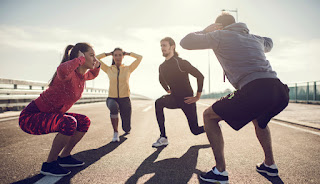5 Tips For Making A New Year’s Resolution You Can Actually Keep
For many, the New Year means a fresh start, a new beginning, a clean slate. It also means a new resolve to finally (finally!) lose some weight. The sober truth is that while many will vow to take better care of their bodies, the vast majority will fail miserably within the first 60 days. Now for the good news: You don’t have to be one of those people who fail. No, really. Keep reading, because I’m about to give you five simple rules for making (and keeping) your New Year’s lose weight, get fit resolution. 1. Be Specific Ask 10 CEOs what their company’s goals are for this year and I can guarantee they won’t say something like, “We want to make more money.” A better business goal would be something like, “We want to increase sales by 5 percent and our retention rate by 10 percent.” The difference here is that the second goal is super specific and the first one is not; the more specific a goal is, the better you’re able to measure the result. If all of this seems obvious to you, that’s to
